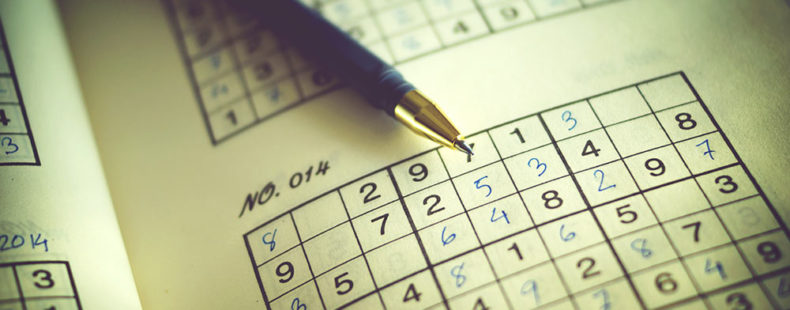
Are you passionate about Sudoku? The number puzzle is so popular that its origin and the meaning of its name deserve some attention.
(Don’t confuse the word “sudoku” with “sodoku,” which is a bacterial zoonotic disease known as “rat-bite fever.” Basically, sodoku has more in common with the Ebola virus than any puzzle game.)
Sudoku is similar to types of European puzzles that were played in the 18th century known as magic squares, among other names. The more recent origin that launched the sensation seems to be the “Number Place” puzzles that were published by Dell Puzzle Magazines in the 1970s.
In 1984, a Japanese publisher began distributing sudoku. They were a huge hit, but it took almost another two decades for the game to capture the interest of players around the world.
The name “sudoku” is abbreviated from the Japanese suuji wa dokushin ni kagiru, which means “the numbers (or digits) must remain single.”
Now there are sudoku competitions across the globe, and variations of the puzzle often appear side-by-side the crossword puzzle in newspapers and magazines. It was even discovered in an Australian jury trial that instead of listening to evidence a number of the jurors were playing sudoku. The trial was declared a mistrial.
With your Sudoku knowledge established, consider the origins of the crossword. Learn what these puzzles were known as before they acquired their now-ubiquitous name, here. And answer the crucial question, are you a cruciverbalist?














